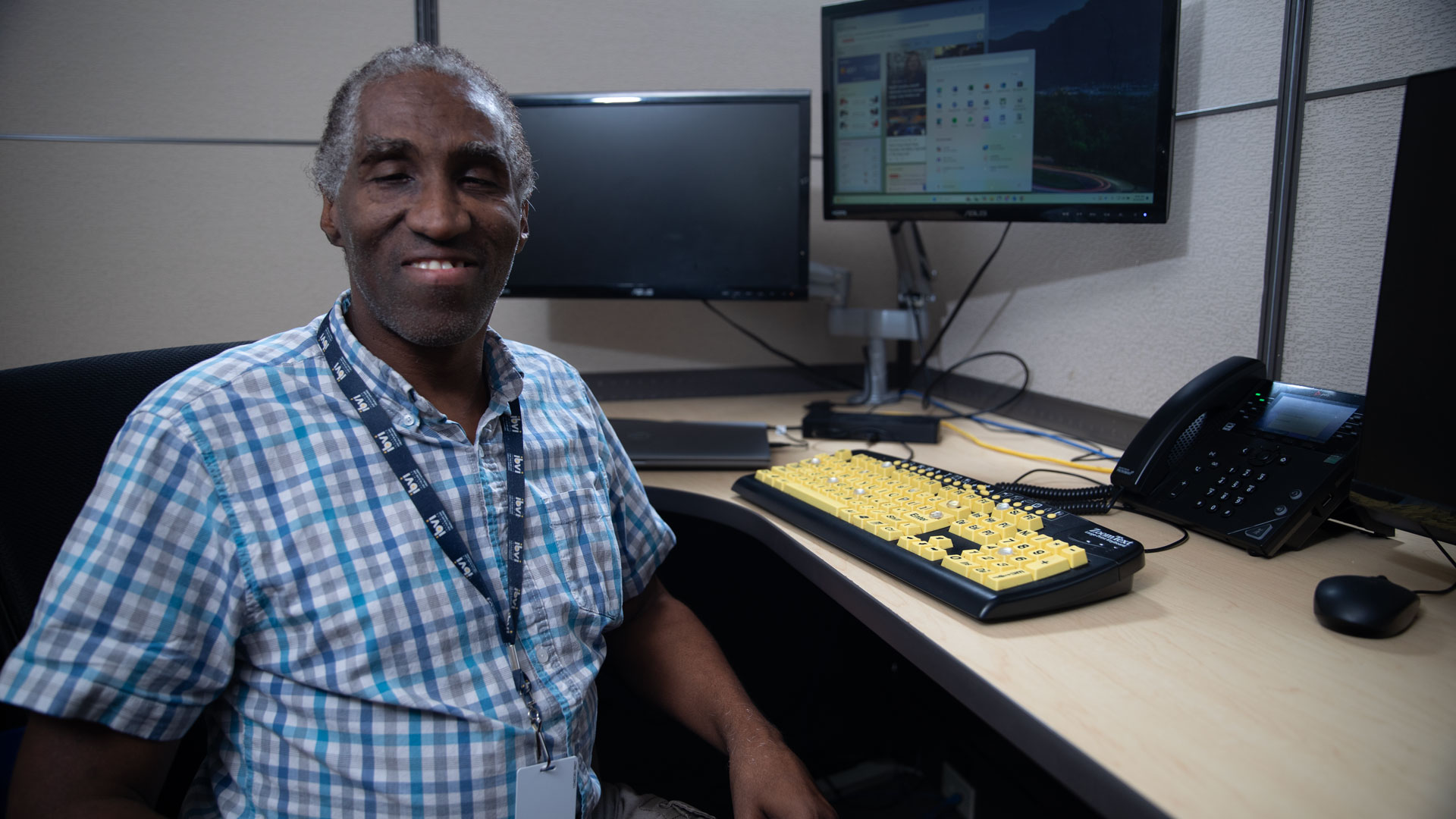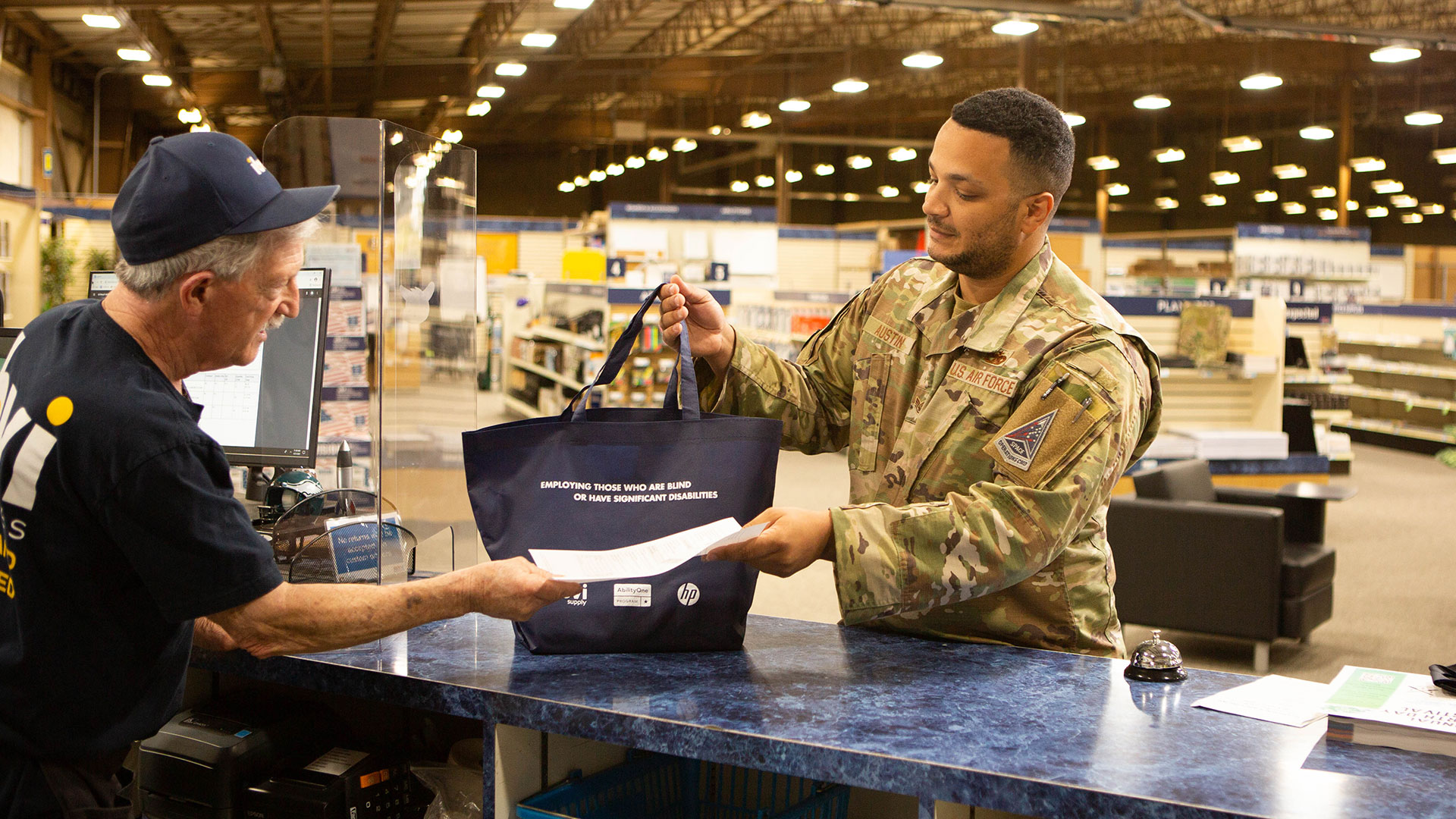Discovering that you’re losing your vision isn’t an easy diagnosis for anyone to hear. There’s no right or wrong way to handle such news, and most people will experience a wide range of emotions in response. However, as they begin to move towards the stage of acceptance, many people wonder (and worry!) about how to prepare when you’re going blind.
While everyone is different, actively preparing for imminent vision loss may provide you with a sense of control over your diagnosis. Likewise, things like learning adaptive techniques and reorganizing your home while you still have vision may ultimately make your adjustment to vision loss a bit smoother. The following tips will provide insight into what you can do to prepare for future vision loss.
Learn About Your Diagnosis
It’s important to know that the term “blindness” is somewhat of a catch-all term for varying degrees and types of vision loss. For example, some types of vision loss may cause peripheral vision loss, while others may experience loss of visual acuity. By learning more about your type of vision loss, you’ll have a better idea of what to expect, how to prepare, and what tools may be helpful to you in the future. In addition to the following resources, there may be organizations or websites dedicated to in-depth information about your particular type of vision loss.
Find Support
Creating a support network can make the process of vision loss easier to deal with for many people. Joining a local group or participating in an online community can provide you with a supportive group of friends who understand what you’re experiencing. Many people also find it helpful to work with a therapist to better cope with the emotions they’re experiencing. Most organizations for the blind offer a wide range of support services. The following links are a great place to start.
- Prevent Blindness: Support Groups
- Lighthouse Guild: Clinical Services
- VisionAware: Support Groups & Resources
- VisionAware: Emotional Support
Talk To Your Employer
If you’re currently employed, you may be concerned about how your impending vision loss may impact your job. You’ll be pleased to know that assistive technology makes it possible for blind professionals to continue their employment. In accordance with the American Disabilities Act (ADA), your employer must offer reasonable accommodation to any employee with disabilities. Before you meet with your boss, talk to a low vision specialist to figure out what type of accommodations you may need to continue doing your job. You may also find it helpful to speak with a JAN (Job Accommodation Network) consultant.
Register For Independent Living Courses
There are a wide range of wonderful organizations across the country that offer courses designed to help people adapt to life with vision loss. From cooking to using a cane, these classes provide training in the skills you need for everyday living with vision loss.

- NIB: Find Resources in Your State
- Hadley Institute for the Blind and Visually Impaired (Online Courses)
Get Organized
Getting your home organized now can make things a bit easier for you once you begin to lose your vision. There are a variety of organizational tricks many people with vision loss utilize that make it possible for them to live independently and continue doing the things they love. The following links feature helpful resources. Likewise, many independent living courses will provide you with helpful household organization tips.
Seek Out Inspiration
When receiving any type of diagnosis, it can be tempting to spend hours reading through countless medical websites. While it’s important to be informed about your health and what to expect, spending too much time reading about worst case scenarios can do a number on your psyche.
Here at ibMilwaukee, one of our goals is to utilize our platform to not only provide inspiration to members of the blind and visually impaired community, but also to spread awareness to members of the sighted community. As we’re fond of saying, “we don’t have disabilities, we have possibilities.”
Here are a few of our favorite inspirational stories:
- ”Notes on Blindness” Beautifully Portrays What It’s Like To Go Blind
- Interview With “The Blind Cook” Christine Ha
For more tips and information on new resources for the blind and visually impaired community, plus inspirational stories, be sure to bookmark our blog, check out our podcast episodes, and follow us on Facebook!
Drop Cap
Page Settings Navigator History
Responsive Mode Preview Changes UPDATE SAVE OPTIONSLink inserted.
4 results found. Use up and down arrow keys to navigate.


